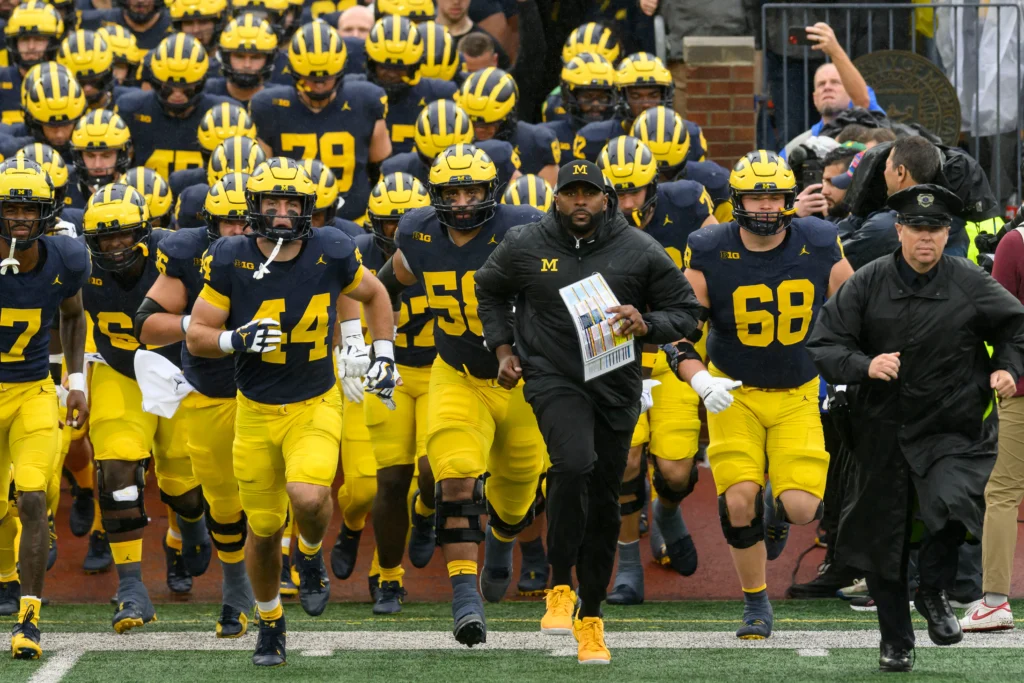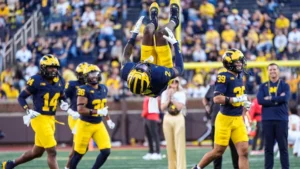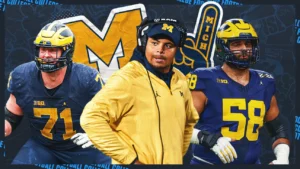
The University of Michigan football team opened its season Saturday with a 34-17 victory over New Mexico, coming less than two weeks after the NCAA levied significant fines against the program in connection with its sign-stealing scandal. Michigan has already announced plans to appeal the decision.
In its 79-page ruling, the NCAA disclosed that a student-athlete admitted to lying when he claimed former linebackers coach Chris Partridge told players not to cooperate with investigators. Partridge, who was dismissed in November 2023 shortly after the probe began, ultimately was not sanctioned following the investigation’s conclusion.
The report further noted that a student-athlete secretly recorded a phone conversation with Connor Stalions, the central figure in the scandal who was hit with an eight-year show-cause penalty. The NCAA also said a Michigan campus source provided key information to an unnamed private investigative firm.
According to information shared with CBS News Detroit by a private investigator, the same student-athlete who lied about Partridge is the one who recorded the call with Stalions. The investigator also said this individual—who was a former Michigan player—was both the campus source and the person who provided evidence to the outside firm.
The investigator claimed that the student-athlete gained unauthorized access to Stalions’ personal computer, copied videos, and handed them over to the firm, which then delivered the material to the NCAA within 24 hours, triggering the investigation.
Dearborn attorney Odey K. Meroueh, of Meroueh & Hallman LLP, who has tracked the case closely, believes Michigan has a strong chance of winning its appeal if it reaches state court.
“There are allegations that some of the evidence was obtained illegally… and that does matter in state court,” Meroueh said. He explained that while the NCAA is free to establish its own procedures, state courts operate differently, applying standards of due process.
“In state court—like in criminal trials—evidence obtained illegally is considered ‘fruit of the poisonous tree,’ meaning anything that stems from it can’t be used. That could potentially lead to the dismissal of the case against Michigan,” he added.





